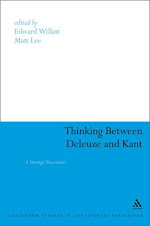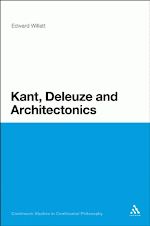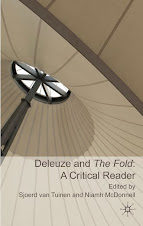Deleuze and Queer Theory
Edited By Merl Storr and Chrysanthi Nigianni
Ediburgh University Press
This book is distributed in North America by Columbia University Press
Feb 2009
200 pages
Series: Deleuze Connections
Description
This exciting collection of work introduces a major shift in debates on sexuality: a shift away from discourse, identity and signification, to a radical new conception of bodily materialism. Moving away from the established path known as queer theory, it suggests an alternative to Butler's matter/representation binary. It thus dares to ask how to think sexuality and sex outside the discursive and linguistic context that has come to dominate contemporary research in social sciences and humanities.
Deleuze and Queer Theory is a provocative and often militant collection that explores a diverse range of themes including: the revisiting of the term 'queer'; a rethinking of the sex-gender distinction as being implied in Queer Theory; an exploration of queer temporalities; the non/re-reading of the homosexual body/desire and the becoming-queer of the Deleuze/Guattari philosophy. It will be essential reading for anyone interested not just in Deleuze's and Guattari's philosophy, but also in the fields of sexuality, gender and feminist theory.
-
-
-
Edited By Merl Storr and Chrysanthi Nigianni
Ediburgh University Press
This book is distributed in North America by Columbia University Press
Feb 2009
200 pages
Series: Deleuze Connections
Description
This exciting collection of work introduces a major shift in debates on sexuality: a shift away from discourse, identity and signification, to a radical new conception of bodily materialism. Moving away from the established path known as queer theory, it suggests an alternative to Butler's matter/representation binary. It thus dares to ask how to think sexuality and sex outside the discursive and linguistic context that has come to dominate contemporary research in social sciences and humanities.
Deleuze and Queer Theory is a provocative and often militant collection that explores a diverse range of themes including: the revisiting of the term 'queer'; a rethinking of the sex-gender distinction as being implied in Queer Theory; an exploration of queer temporalities; the non/re-reading of the homosexual body/desire and the becoming-queer of the Deleuze/Guattari philosophy. It will be essential reading for anyone interested not just in Deleuze's and Guattari's philosophy, but also in the fields of sexuality, gender and feminist theory.
-
-
-





